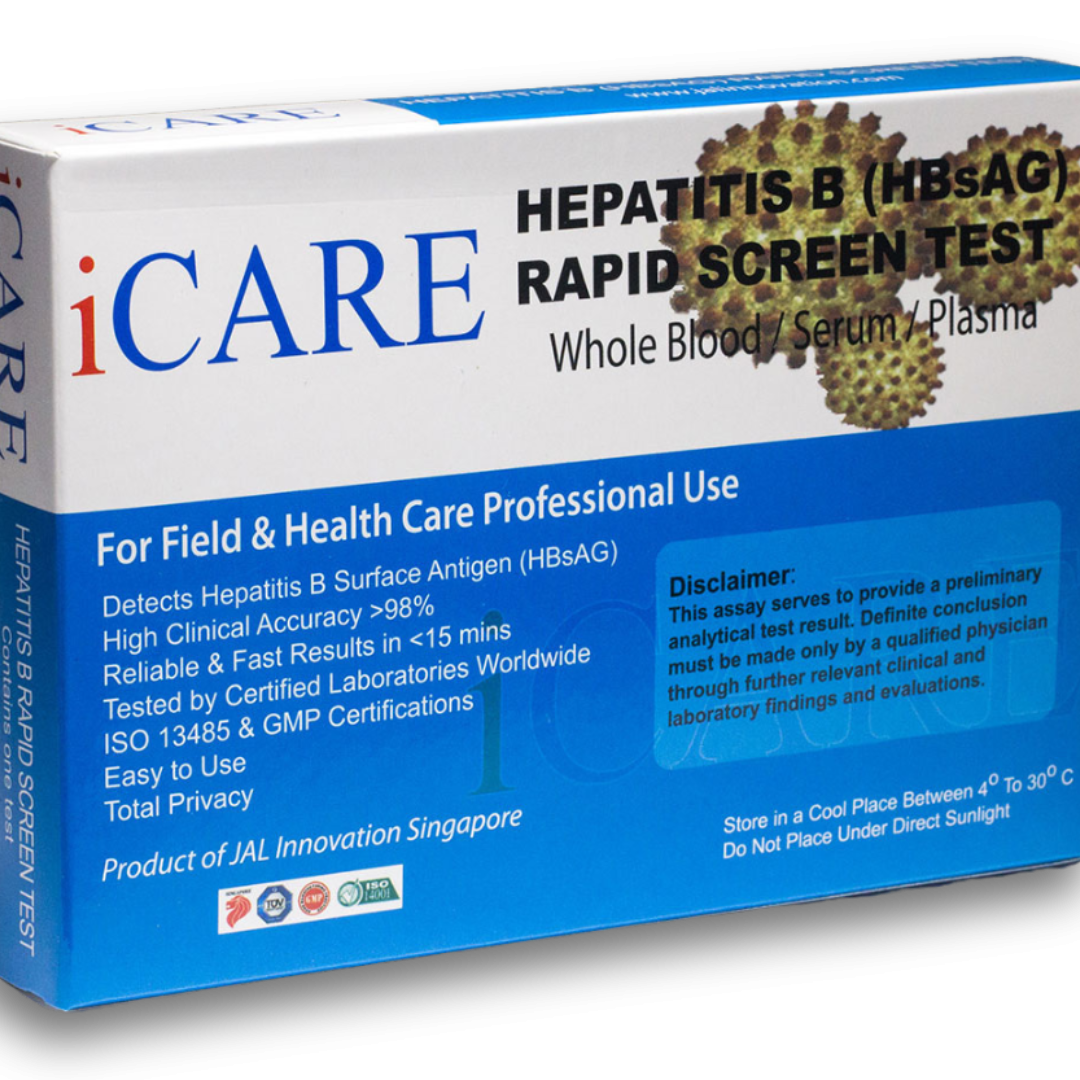Table of Contents
Hepatitis, a viral infection that affects the liver, is a growing health concern in many parts of the world, including the Bahamas. Both Hepatitis B and Hepatitis C are prevalent in the region, leading to a significant burden on public health. The availability of accurate Hepatitis C test kits is an essential part of combating the disease. However, despite the growing availability of these diagnostic tools, the country lacks clear, standardized guidelines for hepatitis management, diagnosis and treatment.
The Bahamas, including cities like Nassau, Freeport Andros Town, Marsh Harbour and Exuma, faces unique challenges in the management of hepatitis. These include limited healthcare infrastructure, the need for more widespread testing and a general lack of awareness surrounding hepatitis prevention and treatment. Establishing robust Hepatitis C testing kit distribution networks, integrating Hepatitis B and C rapid test kits into public health strategies and promoting comprehensive treatment guidelines are crucial steps toward improving hepatitis care across the nation.
This article explores the current landscape of hepatitis management in the Bahamas and offers policy development strategies aimed at establishing clear guidelines for diagnosis, testing, treatment and public awareness.
The Current State of Hepatitis in the Bahamas
Prevalence of Hepatitis in the Bahamas

Hepatitis, particularly Hepatitis C, remains a significant public health issue in the Bahamas. Studies suggest that the rate of Hepatitis C infection in the country may be higher than the global average, with many individuals unaware of their condition due to a lack of widespread testing. Similarly, Hepatitis B, which can lead to chronic liver disease and increase the risk of liver cancer, is also a pressing concern.
In cities like Nassau, Freeport and Marsh Harbour, access to healthcare and testing facilities is more accessible compared to rural areas like Exuma and Andros Town, where healthcare infrastructure may be limited. Consequently, many individuals in these underserved areas may not be receiving the testing and care they need to manage their hepatitis infection effectively.
Developing Guidelines for Hepatitis Management in the Bahamas
Creating Comprehensive Hepatitis Testing and Diagnosis Guidelines
The first step toward better managing hepatitis in the Bahamas is to create clear and accessible Hepatitis C testing guidelines. This can be achieved by:
- Incorporating Rapid Testing: HCV rapid test kit should be integrated into routine healthcare visits, especially for individuals in high-risk categories, including those with a history of intravenous drug use, people who have received blood transfusions and individuals with a family history of liver disease.
- Making Testing Available across All Regions: It’s essential to make Hepatitis C test kits and Hepatitis B home test kits available in both urban and rural areas like Nassau, Freeport Andros Town and Exuma. Outreach programs could help increase awareness and encourage people to get tested regularly.
- Establishing Standardized Diagnostic Procedures: All healthcare providers in the Bahamas should be trained on the importance of Hepatitis B screening. The use of Hepatitis core antibody tests should be standardized to ensure consistency in results and treatment decisions.
- Expanding Access to Home Testing Kits: One way to improve testing coverage in remote areas is by promoting the use of Hepatitis B home test kits. These kits can be distributed through pharmacies, health centers and even community outreach programs, making it easier for individuals in underserved regions to test for hepatitis from the comfort of their homes.

Establishing Treatment and Care Guidelines
Alongside testing guidelines, treatment protocols are also critical for managing hepatitis infections effectively:
- Developing National Treatment Standards: The Bahamian healthcare system should adopt internationally recognized treatment guidelines for Hepatitis B and Hepatitis C. This includes the use of antiviral therapies, such as direct-acting antiviral for Hepatitis C and long-term monitoring of individuals with chronic Hepatitis B.
- Ensuring Access to Treatment: Ensuring that both Hepatitis B and Hepatitis C treatments are accessible, particularly in Freeport and Nassau is essential for improving public health outcomes. Treatment availability should be expanded to smaller islands and rural regions, where hepatitis-related healthcare may be limited.
- Patient Support and Education: Providing resources for patient education and support is crucial. Programs should aim to educate people on lifestyle changes that can help manage the disease, as well as inform them about the latest antiviral treatments.
- Integrating Hepatitis Screening into Routine Care: Hepatitis B rapid test kits should be routinely offered during general healthcare visits, vaccination programs and prenatal check-ups. This ensures that people are regularly tested, which can help catch infections in their early stages.
Promoting Public Awareness and Engagement
Health Campaigns and Outreach Programs
A robust public awareness campaign is critical to increase the visibility of hepatitis as a public health issue. These campaigns should focus on:
- Raising Awareness about Hepatitis: Public health campaigns in cities like Nassau, Freeport and Marsh Harbour can educate the population about the risks of hepatitis, the importance of getting tested and available treatment options. These campaigns should use both traditional media and digital platforms to reach a wide audience.
- Reducing Stigma around Hepatitis: One of the biggest challenges to testing and treatment is the stigma associated with hepatitis. A comprehensive education program can help reduce stigma by promoting understanding about how hepatitis is transmitted, its symptoms and the fact that it is a treatable condition.
- Encouraging Routine Testing: Routine Hepatitis C testing should be promoted through both public healthcare systems and private providers. Incorporating rapid hepatitis tests, including Hepatitis C Home Testing Kits, into annual check-ups can help increase testing rates.

Conclusion
The establishment of clear guidelines for hepatitis management in the Bahamas is essential for combating the rise of Hepatitis B and Hepatitis C in the country. By integrating Hepatitis C rapid test kits, Hepatitis B rapid tests and other diagnostic tools into routine healthcare visits and ensuring access to affordable and effective treatments, the Bahamas can make significant strides in reducing the burden of these viral infections.
Moreover, public health initiatives aimed at raising awareness, reducing stigma and promoting widespread Hepatitis B and C testing will play a key role in ensuring that more individuals get tested and receive the care they need. Policy development should focus on not just the provision of Hepatitis C testing kits, but also on the development of comprehensive support systems for those living with chronic hepatitis infections.
FAQS ON Hepatitis Management
Hepatitis Management in the Bahamas: Policy Development & Guidelines
What are the most common types of hepatitis in the Bahamas?
The most common types of hepatitis in the Bahamas are Hepatitis B and Hepatitis C. Both can lead to chronic liver disease, cirrhosis and liver cancer if not diagnosed and treated early.
How accurate are Hepatitis C rapid test kits?
Hepatitis C rapid test kits are generally accurate and provide quick results. However, a positive result should be followed by confirmatory testing in a healthcare setting to ensure accurate diagnosis.
Can I use a Hepatitis C Home Test Kit for diagnosis?
Hepatitis C Home Test Kits can be used for initial screening. If the test result is positive, it is important to follow up with a healthcare provider for further evaluation and confirmatory testing.
How can Hepatitis B rapid test kits help in managing the disease?
Hepatitis B rapid test kits provide quick, reliable results, allowing for early diagnosis and treatment of hepatitis B, which is crucial for preventing liver damage and other complications.






